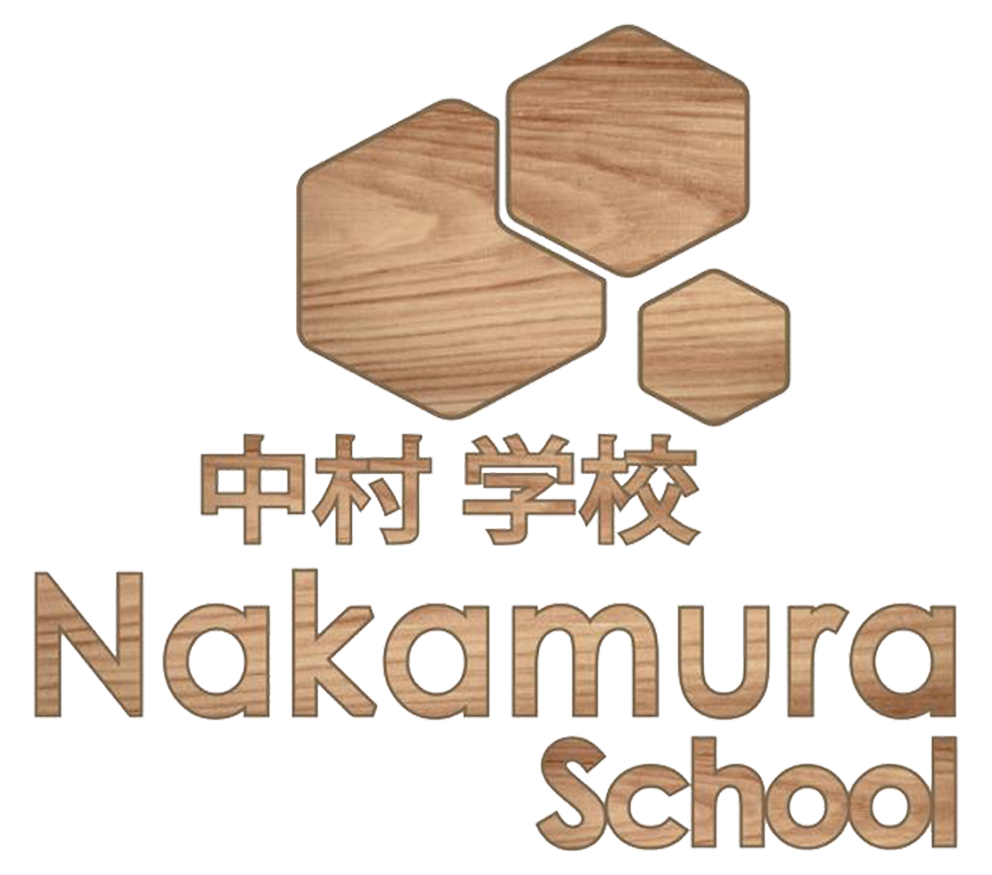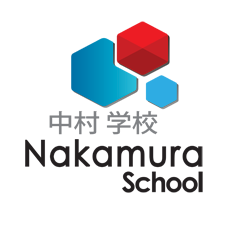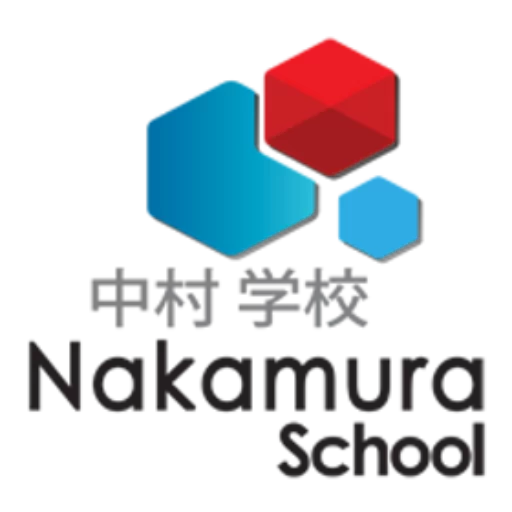SECONDARY SCHOOL
Secondary Education Curriculum
At Nakamura School, our Secondary School curriculum is designed to prepare students for the challenges and opportunities of the future. In Junior High, we focus on enhancing critical thinking and problem-solving skills through practical situations, fostering a tech-savvy, ethical, and compassionate mindset. Our approach encourages students to engage with real-world problems and develop the skills needed for effective decision-making and ethical leadership.
As students advance to Senior High, we aim to empower them with diverse cultural experiences and global perspectives. This stage is dedicated to helping students become experts in their fields, equipped to contribute positively to both local and global communities. We provide opportunities for students to explore their interests deeply, develop a broad understanding of the world, and prepare for impactful futures. At Nakamura School, our goal is to nurture confident, informed, and responsible individuals ready to make meaningful contributions in an interconnected world.
As students advance to Senior High, we aim to empower them with diverse cultural experiences and global perspectives. This stage is dedicated to helping students become experts in their fields, equipped to contribute positively to both local and global communities. We provide opportunities for students to explore their interests deeply, develop a broad understanding of the world, and prepare for impactful futures. At Nakamura School, our goal is to nurture confident, informed, and responsible individuals ready to make meaningful contributions in an interconnected world.
Problem-Based Learning (PBL)
At Nakamura School, we believe in providing our students with a transformative educational experience that goes beyond traditional classroom learning. We embrace Problem-Based Learning (PBL) as a powerful pedagogical approach that equips our secondary school students with the skills and mindset they need to succeed in a dynamic and ever-changing world.
What is Problem-Based Learning?
Problem-Based Learning is an innovative teaching method that places students at the center of their learning journey. Rather than simply memorizing facts, our students actively engage in real-world challenges and authentic problems. These carefully designed problems require critical thinking, collaboration, and creativity to find viable solutions.
How Does PBL Work?
In our PBL classrooms, students become active learners and problem solvers. They are presented with thought-provoking scenarios and practical challenges that mirror the complexities of the real world. Working in teams, they delve into research, analyze data, and explore multiple perspectives, developing a deep understanding of the subject matter.
What is Problem-Based Learning?
Problem-Based Learning is an innovative teaching method that places students at the center of their learning journey. Rather than simply memorizing facts, our students actively engage in real-world challenges and authentic problems. These carefully designed problems require critical thinking, collaboration, and creativity to find viable solutions.
How Does PBL Work?
In our PBL classrooms, students become active learners and problem solvers. They are presented with thought-provoking scenarios and practical challenges that mirror the complexities of the real world. Working in teams, they delve into research, analyze data, and explore multiple perspectives, developing a deep understanding of the subject matter.
Our Syllabus
The Secondary School learning program at Nakamura School is thoughtfully crafted, drawing from both the Indonesia Education Standards Authority syllabuses and the Japanese curriculum.
This comprehensive curriculum encompasses several Key Learning Areas, including Moral Education, Japanese, English, Mathematics, Science, Arts and Craft, as well as Health and Physical Education.
Particular emphasis is placed on Moral Education and Arts, as we strongly believe in shaping the students' character and nurturing their creativity.
To foster effective language learning, we utilize a variety of methods such as language exposure, playful activities, games, music, and discovery. These engaging approaches ensure that language acquisition becomes an enjoyable and enriching experience for the students.
This comprehensive curriculum encompasses several Key Learning Areas, including Moral Education, Japanese, English, Mathematics, Science, Arts and Craft, as well as Health and Physical Education.
Particular emphasis is placed on Moral Education and Arts, as we strongly believe in shaping the students' character and nurturing their creativity.
To foster effective language learning, we utilize a variety of methods such as language exposure, playful activities, games, music, and discovery. These engaging approaches ensure that language acquisition becomes an enjoyable and enriching experience for the students.
Our Approach

Problem-Solving Situations
Students identify the key issues, gather relevant information, and devise solutions, emphasizing critical thinking, research skills, and the application of knowledge in practical situations.

Case-Based Learning
Students examine detailed cases, exploring the problem, analyzing data, and proposing solutions. The focus is on applying theoretical knowledge to real-world situations.

Design Thinking
Students create new solutions by defining the problem, analyzing existing solutions, and exploring new methods to develop more effective solutions.
Primary Subjects
Moral
Deepening students’ understanding of empathy, integrity, and social responsibility through value-based discussions and ethical reflections.
Career Development
Introducing students to real-world professions, personal strengths, and future pathways through reflection, exploration, and practical guidance—helping them make informed and values-driven life choices.
Unity of Inquiry
An integrated, theme-driven approach to learning that develops critical thinking, collaboration, and global awareness across multiple disciplines.
Health & Physical Education
Promoting holistic well-being, physical fitness, teamwork, and lifelong healthy habits through daily activity and guided lessons.
English
Enhancing academic literacy, global communication, and creative expression through reading, writing, and public speaking.
Bahasa Indonesia
Promoting national pride, critical literacy, and cultural appreciation through advanced language learning and literary study.
Pancasila
Instilling civic responsibility and democratic values through active exploration of Indonesia’s national ideology and its real-life applications.
Japanese
Building foundational fluency in reading, writing, and speaking, while nurturing respect for Japanese culture and discipline.
JLPT
Japanese Language Proficiency Test
Preparing students for internationally recognized language certification with focused grammar, kanji, listening, and reading practice.
Math
Strengthening problem-solving, logic, and quantitative reasoning with real-world applications and progressive challenges.
Sciences
Encouraging curiosity and analytical thinking through inquiry-based learning in physics, biology, chemistry, and general science.
Social Studies
Exploring historical, political, and cultural systems to build critical awareness and informed perspectives on society.
Homemaking
Teaching practical life skills including nutrition, budgeting, sewing, and personal organization to support self-reliance and home care.
Computer Science
Equipping students with essential digital skills, logical thinking, and introductory coding knowledge for the 21st-century world.
Graphic Design
Combining creativity and technology to develop visual communication skills using digital tools for modern media and design projects.
Fine Arts
Encouraging creative exploration, visual literacy, and emotional expression through various artistic techniques and media.
Music
Fostering self-expression and emotional development through musical exploration, instrumental practice, and ensemble collaboration.
Religions
Providing respectful, values-based religious education according to each student’s faith tradition, promoting understanding, reflection, and spiritual growth. We teach Catholicism, Protestantism, Islamism, and Buddhism.
Biology
Studying living systems and biological processes through observation, experimentation, and critical inquiry.
Chemistry
Exploring matter, chemical reactions, and scientific analysis to understand the substances that shape our world.
Physics
Developing problem-solving and analytical skills by examining energy, motion, and the physical laws of nature.
Economics & Accounting
Understanding financial systems, economic principles, and basic accounting to prepare students for real-world decision-making.
Geography
Examining the relationships between people, places, and environments to foster global awareness and spatial thinking.
History
Learning from past civilizations, movements, and events to develop historical thinking and a deeper understanding of the present.
Sociology
Analyzing human behavior, social structures, and cultural patterns to better understand society and the self.
Secondary Subjects
Motoric & Physical Education
We engage children in playful activities that promote gross motor skills, coordination, and a positive attitude towards an active lifestyle.
Habits & Moral Behavior
Habits and Moral classes instill essential values and ethics, nurturing well-rounded individuals who show empathy, respect, and integrity in their interactions.
Social & Emotional Development
SED nurtures students' emotional intelligence, creating self-awareness, empathy, good relationships, and responsible decision-making skills, which is essential for successful social interactions.
Language, Phonics, & Literacy
We create a language-rich environment, nurturing early reading and communication skills in English, Indonesian, and Japanese through storytelling, phonics, and interactive learning.
Numeracy & Logical Thinking
We introduce foundational mathematical concepts through fun activities, games, and hands-on experiences, preparing kids for future learning success.
Nutrition & Healthy Habits
We promote healthy eating habits by introducing children to nutritious foods, encouraging balanced meals, and instilling a lifelong appreciation for wholesome nourishment.
Creative Arts
Our art classes inspire creativity and self-expression through various mediums, allowing kids to explore their imagination and develop fine motor skills in a joyful environment.
Music
Children embark on a melodic journey, discovering rhythm, instruments, and melodies, fostering a love for music and nurturing their auditory and social development.



